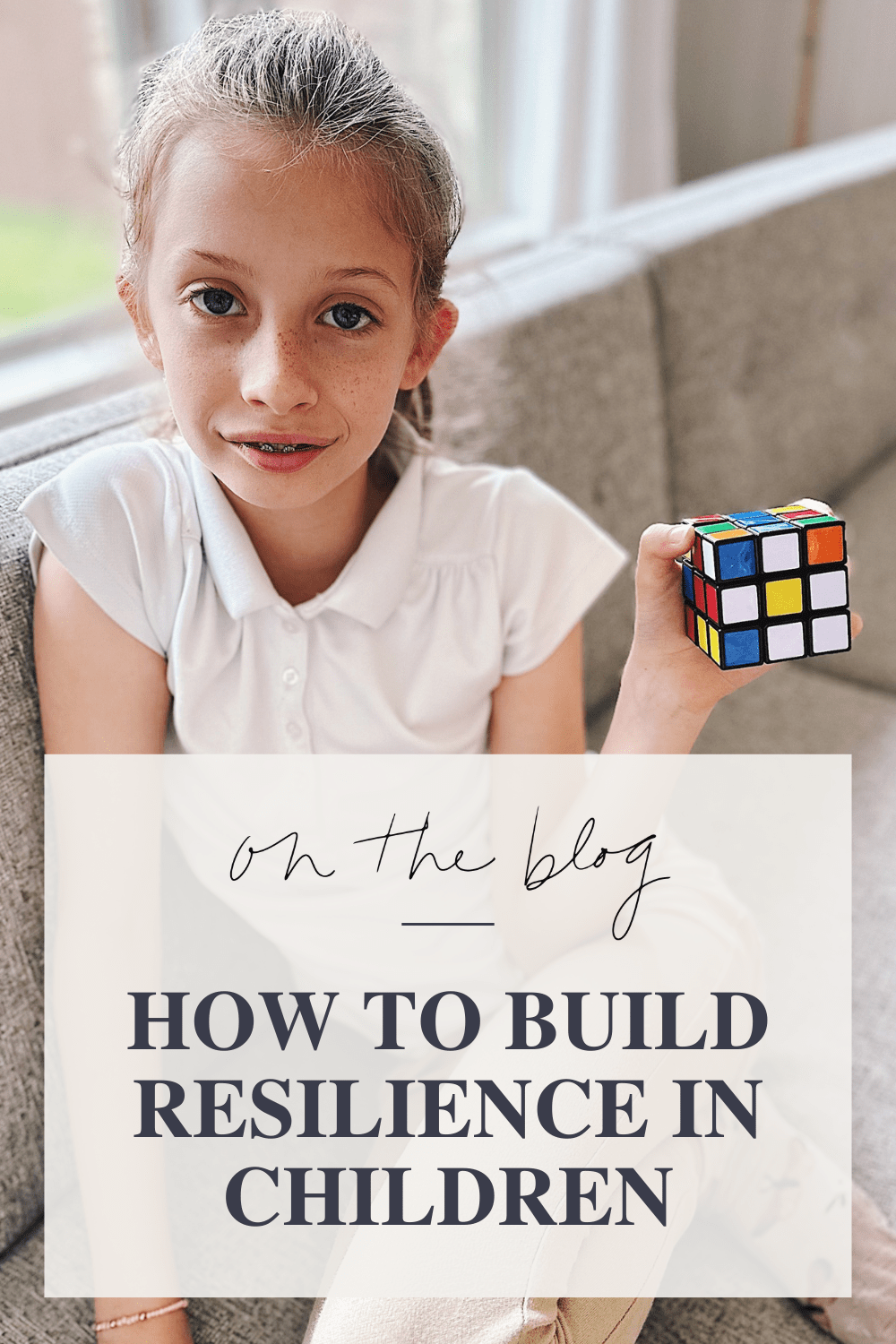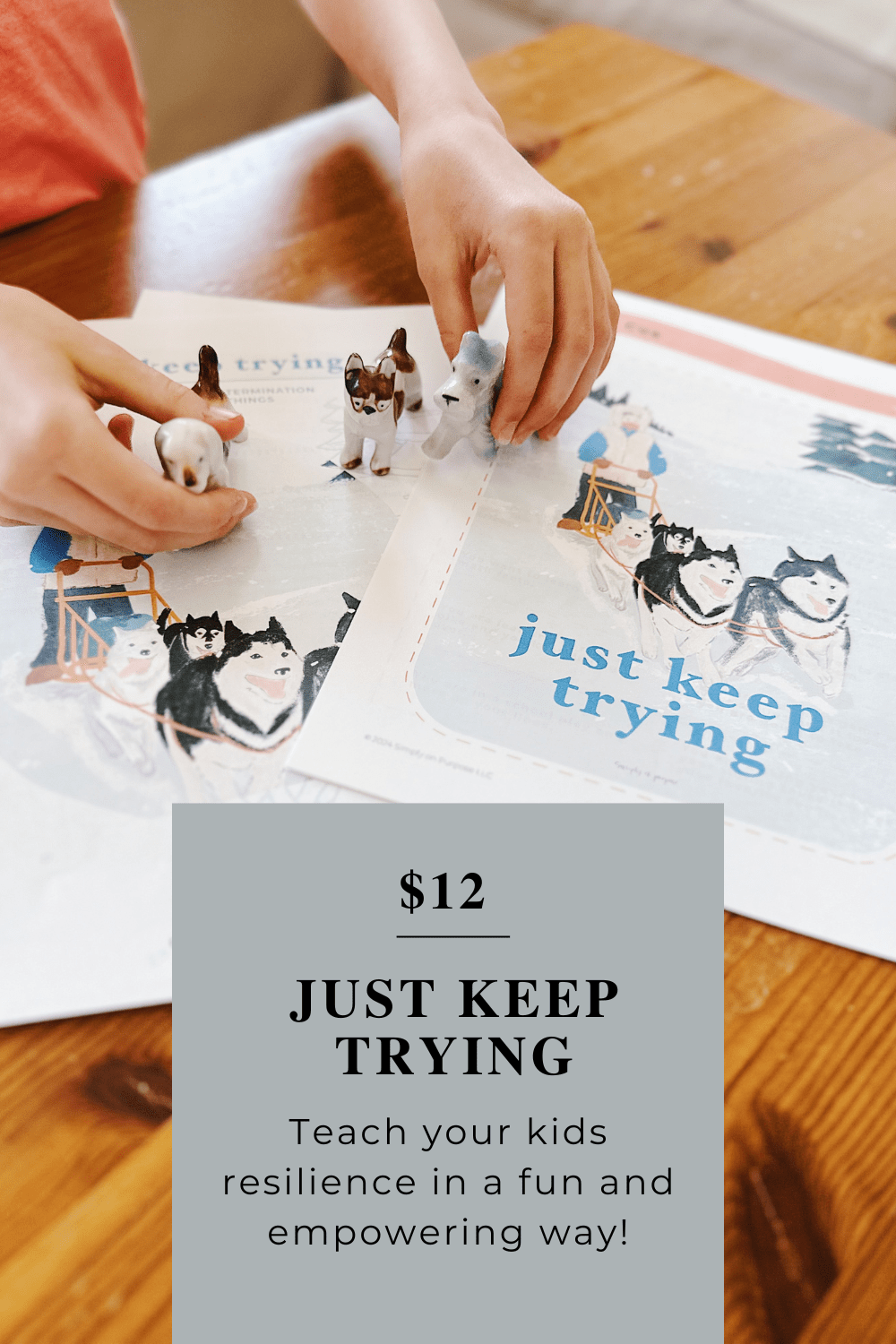Resilience is a vital trait that can empower children to navigate life’s challenges with confidence and adaptability. As parents, nurturing resilience in our children is key to their overall well-being and success. Here are four actionable strategies to help build resilience in kids:
1. Embrace Mistakes as Opportunities for Growth
Mistakes are an inevitable part of the learning process, and teaching children to view them as stepping stones rather than stumbling blocks is crucial. I often say to my girls, “Mistakes are welcome in our house!”
When children understand that mistakes are natural and necessary for improvement, they become more resilient in the face of setbacks. Encourage an environment where mistakes are normalized and viewed as valuable learning experiences. Be open about the mistakes you make even as an adult—this can open your child’s eyes to the fact that you are still learning too.
2. Respect Your Child’s Decisions, Even When They Lead to Mistakes
Is it ever hard for you to let your child make a decision when you know the outcome won’t be ideal? Here’s a tip for you: unless it is a matter of safety, respect their choices. While it may be tempting to intervene and shield them from potential failures, allowing children to make their own decisions—even if they result in mistakes—empowers them to learn and grow.
Children live in a very low-risk time in their lives, where the mistakes they make are a great opportunity for their brain to grow. So even though it can be hard for many parents, give your kiddos many opportunities to practice making mistakes! Not only does it develop their brain, but also it teaches children to take ownership of their actions and learn from their experiences.
3. Applaud Effort, Not Just Output
In a results-driven society, it’s easy for children to equate success solely with outcomes rather than the effort they have put in. However, true resilience lies in the determination and perseverance demonstrated along the way.
My daughter recently got a score on a test that she was not very happy with, especially because she worked and studied SO hard to prepare. But we as parents need to praise the effort, not the product. So here’s what I said to her: “All of the skills that you have learned to take that test are far more valuable than the score itself.”
Encourage a growth mindset by praising your child’s hard work, resilience, and persistence, regardless of the outcome. Celebrate their efforts, whether they achieve their desired outcome or encounter setbacks. Let’s shift the focus from the end result to the journey taken.
4. Teach Goal Setting and Persistence
Setting goals provides children with a sense of purpose and direction, teaching them to work towards their aspirations. Encourage your child to identify both short-term and long-term goals, and help them develop a roadmap for success. Teach them the importance of breaking down larger goals into manageable steps, promoting a sense of accomplishment with each milestone achieved. By teaching children to set goals and persistently pursue them, parents equip them with the resilience they need to overcome challenges and thrive with anything they choose to take on in the future.
The “Just Keep Trying” Resource
I have created a resource all about teaching resilience called “Just Keep Trying: Using Grit and Determination to Do Hard Things.” There are four components to this resource:
- An Interactive Story: Complete with puppets, this historical story teaches grit through the adventure of a dogsled race that took incredible determination to finish
- Discussion Questions: To promote conversation about the story, and about how we can show resilience and grit day-to-day
- Role Plays: These are real life examples and situations to act out, “What does it look like for me today to have resilience today?”
- Goal Setting Activity: Using paw prints from the sled dogs, children can set a goal and decide which steps they will take to get there. My favorite part: deciding how they will celebrate when they’ve accomplished their goal!
If you would like to learn more about teaching your children values, you might enjoy these resources:


